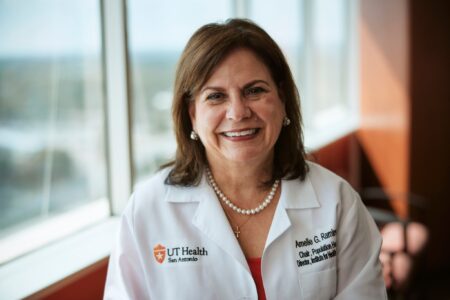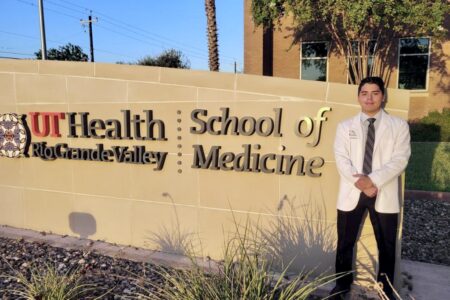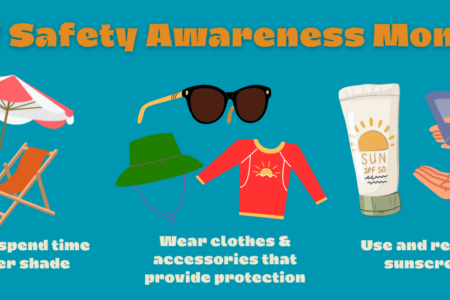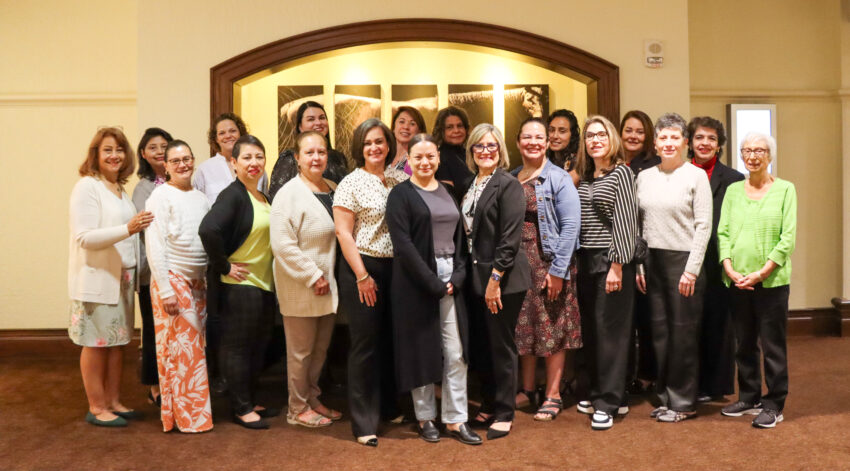
Share On Social!
Ahead of the 2024 Advancing the Science of Cancer in Latinos Conference, 15 Latina women from across the country came together, unified by a common thread — to become a research patient advocate.
This gathering, on Feb. 20, 2024, marked the first in-person meeting of the Latino Cancer Patient Advocate Training Program, a new initiative to teach cancer survivors to become research patient advocates, who help others navigate the healthcare system and raise the Latino voice in research.
Patient advocates are critical to the goal of reducing Latino cancer disparities, said Dr. Barbara Segarra-Vázquez of the University of Puerto Rico, co-leader of the new program.
“You really have to have passion to become a patient advocate,” said Segarra-Vazquez. “It’s that desire to help others, that desire to speak for those who cannot speak, maybe because they’re not sitting at the table, or maybe because they’re not here anymore. It’s our role to continue the legacy and to have less people or no people at all die from cancer.”
Origins of Latino Patient Advocacy
Segarra-Vazquez, a two-time breast cancer survivor, has a deep-rooted dedication to research and patient advocacy, which includes increasing diversity in clinical trials.
Her passion led her to create a cancer advocate training program in Puerto Rico in 2017 – Hispanics Increasing Diversity to Enhance Advocacy in Science (HIDEAS).
A patient advocate can play many roles. They can serve as a guide for cancer patients, survivors, and caregivers, offering education and support. They can help patients communicate with care teams. And they can share their voice to boost equity in research, healthcare, and outreach programs.
She developed HIDEAS because she noticed a lack of Latinas in cancer meetings and other activities.
With help from Dr. Edna Pacheco and Dr. Michelle Martinez, Segarra-Vazquez offered the program to 15 breast cancer survivors in Puerto Rico.
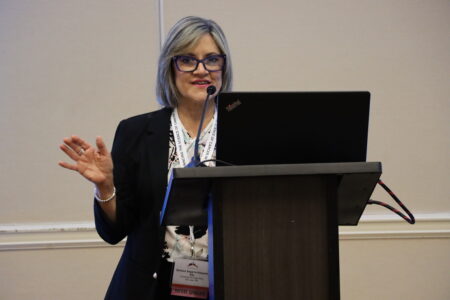
While her Puerto Rican program successfully trained a network of patient advocates, Segarra-Vazquez had a dream to offer a similar program for US Latino cancer survivors, who had a first-hand understanding of the issues affecting their community.
So, she turned her attention to the US.
As a regular guest and member of the planning committee for Advancing the Science of Cancer in Latinos, a biennial conference series led by UT Health San Antonio, Segarra-Vazquez sought the support of conference creator Dr. Amelie G. Ramirez to help kick-start the program.
To create the program, Segarra-Vazquez enlisted Sandi Stanford, fellow conference planning committee member and cancer survivor. Stanford also serves as chair of the community advisory board for Mays Cancer Center at UT Health San Antonio and sits on the board of the Alamo Breast Cancer Foundation.
“As a 29-year survivor, I started with a very little voice and now my voice is bigger. I’m not afraid to say something or ask a doctor a question. Whereas in the Latina community, that’s not the case,” Stanford said. “What we wanted to do was to get that mindset out of their minds, so that when they go home, they’ll be able to tell the people in their community, ‘No, the doctor doesn’t know everything.’”
With Stanford by her side and the support of Ramirez, Segarra-Vazquez’s dream of launching a patient advocate training in the US moved toward fruition.
Establishing the Latino Cancer Patient Advocate Training Program
Segarra-Vazquez and Stanford began developing the Latino Cancer Patient Advocate Training Program in August 2023.
Segarra drew on her experience building patient advocate training in Puerto Rico. Stanford lent her experience as a patient advocate and years of running the patient advocate program for the San Antonio Breast Cancer Symposium.
Together, they wanted the program to amplify the voice of the Latina cancer survivor.
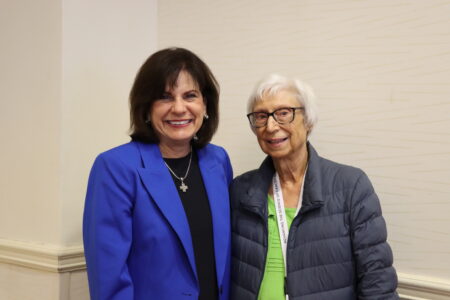
They also garnered support from Exact Sciences, Pfizer Oncology, and Susan G. Komen. They also got support from UT Health San Antonio’s Institute for Health Promotion Research, Mays Cancer Center, the University of Puerto Rico’s Medical Sciences Campus and School of Health Professions, and partner program, Guiding Researchers & Advocates to Scientific Partnerships (GRASP).
The program opened an application for patient advocates in October 2023.
In November 2023, the program selected 15 individuals representing different types of cancer and roles such as, survivors, caregivers, and previvors, from a pool of over 35 applicants.
The trainees include: Anais Arriaga (San Mateo, CA), Rosemary Carrera (Miami, FL), Maria Elena Frederick (Washington DC), Claudia María González, Roxana Guerra (VA), Shirley Muñoz (Los Angeles, CA), Maria Olivero (Chicago, IL), Ada Osoy (Los Angeles, CA), Maricarmen Planas-Silva (Houston, TX), Yovana Portillo (FL), Lourdes Rocha-Nussbaum (Golden, Colorado), Marisol Rosas Becerril (Orange County, CA), Betty Sánchez (Princeton, NJ), Marielle Santos McLeod (Charleston, SC), and Andrea Suarez Vargas (Miami, FL).
They met one another virtually for the first time in December.
“It was very enlightening when we had all the windows of Zoom open … and one of the women said, ‘Oh, my goodness, this is the first time that I’m in a Zoom meeting and I see so many people that look like me,’” Segarra-Vazquez recalled. “It was enlightening and then to listen to each other and hear that we all have accents … it’s also comforting.”
Following the initial meeting, participants met once more in January 2024 for a virtual educational session. Later they would travel to the Alamo City to finally meet face-to-face.
Bringing the Latino Cancer Patient Advocate Training Program to San Antonio
The 15 patient advocate trainees gathered at the San Antonio Marriott Riverwalk on Feb. 20, 2024, the day before the Advancing the Science of Cancer in Latinos Conference.
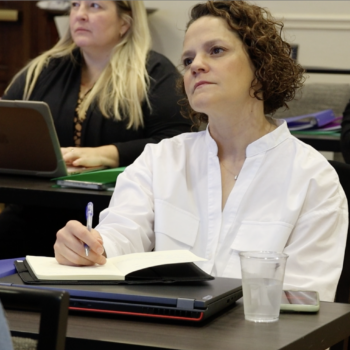
They learned about patient advocacy from experts in their respected fields, including advocates Debbie Denardi, Ivis Febus-Sampayo, and Julia Maues.
The training also covered scientific topics, such as genetics, drug development, and clinical trials, giving participants a better understanding of cancer to help inform their advocacy work, said Rosemary Carrera, a program trainee and breast cancer survivor in Miami.
“Trainings like this are so important because it’s the most efficient way we can get the most recent scientific information into the hands of the people that really need it the most. That way [advocates] can play an active role in [patient] care,” Carrera said.
Hearing the science of cancer struck a chord with Florida resident, Yovana Portillo, who wants to be a voice for patients battling lung cancer like she did when she was diagnosed in 2016.
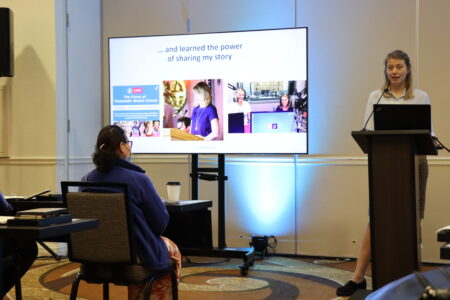
“I came in and I’m like, I’m just going to be a sponge — I want to take it all in. There is a lot of information, but just seeing the science … and seeing where it’s headed, I know that there is hope for the future of lung cancer patients and that’s music to my ears,” Portillo said.
Trainees were also invited to stay for the duration of the Advancing the Science of Cancer in Latinos Conference from Feb. 21-23, 2024.
At the conference, they listened to discussions on climate change’s impact on cancer, social determinates of health, and advancement in cancer data science and precision medicine — becoming well-rounded cancer advocates in the process.
“We depend on patient advocates to help shape research questions, study design, clinical care, and community interventions that can best work for the Latino population,” said Ramirez, who leads the Advancing the Science of Cancer in Latinos Conference, co-hosted by her Institute for Health Promotion Research (the team behind Salud America!) and Mays Cancer Center at UT Health San Antonio.
The Increasing Need for Latino Patient Advocates
Cancer is the top cause of death for Latinos in the US.
Latinos suffer disproportionately from certain cancer types, including liver and cervical cancers, while facing worse outcomes for other cancer types.
Many of these disparities have a root in historic systemic racism creating inequities in living conditions such as access to housing, education, and healthy food.
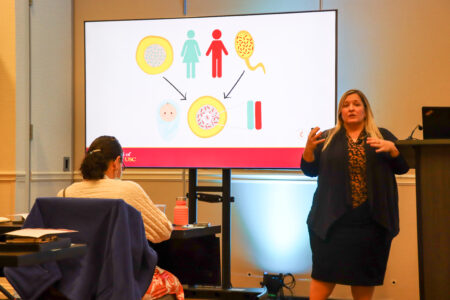
These inequities often create barriers to health care, which can be worsened by lack of representation in health careers and language barriers.
While there are rising efforts to secure a seat at the cancer care table, Latinos have been consistently left out of the conversation, creating a gap between medical stakeholders and those they serve.
That’s where cancer patient and research advocates come into play.
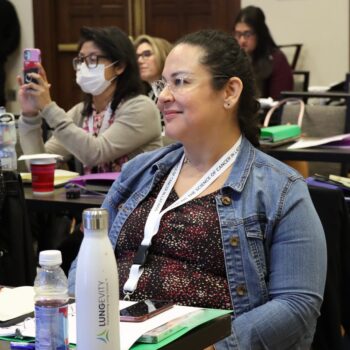
“The role and value of the patient advocate is to bring that real life experience to help scientists and the world understand what patients go through. Just from the news [of the diagnosis] to the treatments to the side effects and having that voice and sharing that commitment of what works, what doesn’t, is very important,” said Segarra-Vazquez.
For Latinos dealing with cancer, having a Latino patient advocate who understands the culture, language, and societal barriers associated with being Latino can help relieve some of the cancer burden.
“I think with the Latino culture and community, the culture is known to be a little bit submissive, and doctor is always right. I think it’s important for a patient to know that their voice matters, what they want to do with their body is their choice, and they don’t necessarily need to go with a treatment plan that maybe a doctor has in mind for them, there are alternatives. I want to make that a little bit better known and more available to the Latino community,” Portillo told Salud America!
Path to Patient Advocacy
The path to patient advocacy isn’t always an easy one.
But each participant of the first-ever Latino Cancer Patient Advocate Training Program brings a wealth of lived experience that aid them in their journey and commitment to the cause.
Here’s what some trainees had to say about their motivation for becoming a patient advocate:
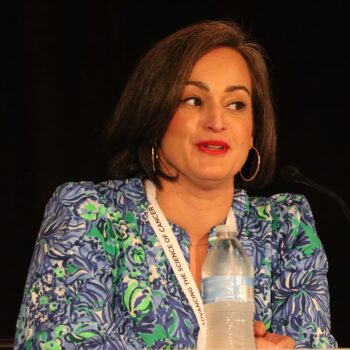
“As a young onset colon cancer survivor, I realized that there were not many statistics, not only for myself as a young onset patient, but also as a Latina, and I wanted to be in a world where my statistics matter.”
-Marielle Santos McLeod, SC
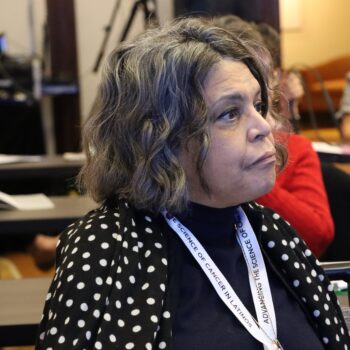
“Latinos and Hispanics. Just being in this community is really important. Cancer is the number one killer in the Hispanic/Latino community while it’s the number two killer in the USA.”
-Betty Sánchez, NJ
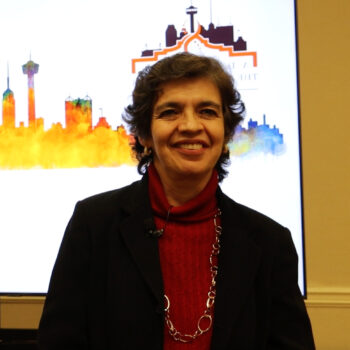
“I see the many needs our Latino community has when they get a diagnosis of cancer and they have no access to resources, and it’s just a question of helping them find resources when they need it the most.”
-Maricarmen Planas-Silva, TX
Future of Latino Patient Advocacy
The inaugural Latino Cancer Patient Advocate Training Program is scheduled to conclude in a few months with three more virtual sessions. They also hope to publish an article featuring evaluations of participants’ experience and the impact of the training.
Fueled with education and inspiration, the 15 Latina patient advocates will put what they learn into practice in their communities by advocating for Latino participation in clinical trials, communicating patient needs to ensure proper care, and more.
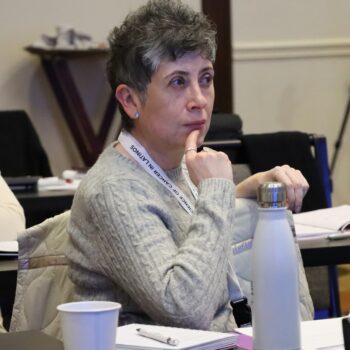
Several trainees are already flexing their advocacy muscles – Marielle Santos McLeod and Mariacarmen Planas-Silva shared their stories with the San Antonio Express-News, and McLeod served on a survivorship panel at the conference.
“[This training] gives us elements to sit down with the different stakeholders and have a conversation where we can speak up and we have the elements and arguments to better articulate what our world needs and how we can contribute and how we can improve the patient experience,” said Andrea Suarez Vargas, a patient advocate trainee and colon cancer survivor originally from Colombia.
Following the training’s completion, Segarra-Vazquez hopes to garner support from more sponsors so that the table can be set for the next class of trainees — adding to a growing network of Latino research advocates.
“Our courtship together is bringing our voice, and my vision will be to have them sit at the tables where they can bring up the issues,” Segarra-Vazquez said.
“I think it’s very important that everyone has a seat at the table.”
By The Numbers
142
Percent
Expected rise in Latino cancer cases in coming years

